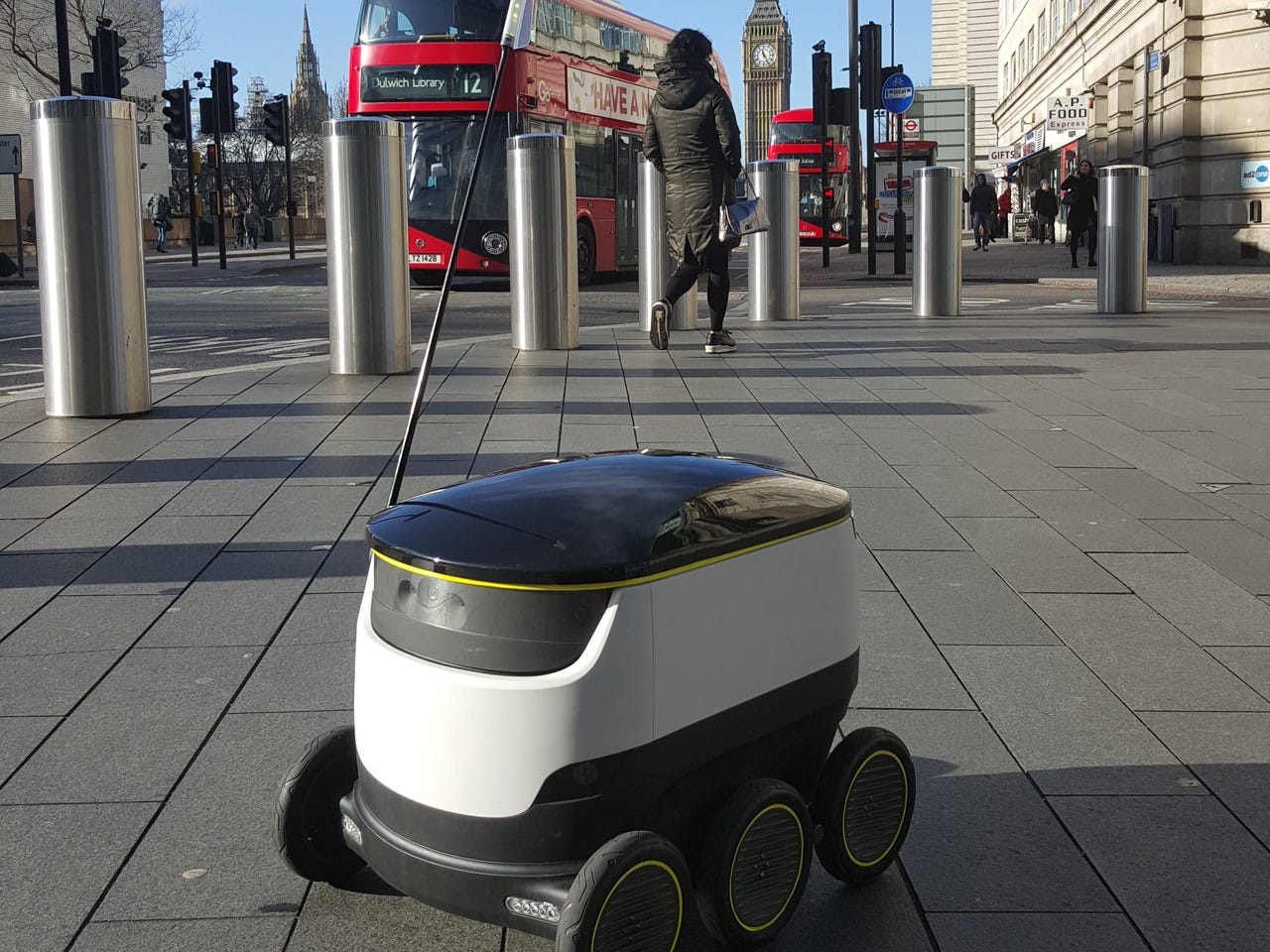Skype's co-creator wants this cute six-wheeled robot to deliver your shopping (and cut congestion too)


Starship Technologies CEO Ahti Heinla wants to 'revolutionise' local delivery with autonomous robots.
Self-driving delivery robots are set to take to the streets of London in what's claimed to be a world first for autonomous vehicles being let loose without supervision or a backup safety driver.
That bold claim comes from Ahti Heinla, one of the co-founders of Skype and now CEO and CTO of Starship Technologies, a robotics company he launched alongside Janus Friss with the aim of revolutionising the local delivery of goods.
Starship says its key aim is "bringing to delivery what Skype brought to telecommunications - and aiming to ultimately make it free" and its team of 45 people is spread across Estonia, Finland and London.
It was in London which Heinla was speaking about "creating a new version of the future" at an event in Greenwich, held to celebrate reaching 1,000 miles of road-testing the robots and to announce how the UK will be the first country to host major trials for the six-wheeled, self-driving delivery robot, which is designed to deliver goods locally within 30 minutes.
" When you look at look out the window here, you see a lot of cars," Heinla said, looking down at the southern approach to the Blackwall Tunnel, which goes under the River Thames, connecting North and South London together by road.
"A lot of those people in those cars are going on a personal shopping trip to a supermarket to buy something; and they're also crashing into other cars in the process, sometimes killing each other. They're also emitting CO2 in the process and we want to change that," he explained, detailing some of the risks and consequences of travelling by road.
With Starship however, Heinla and his team have a vision of low-cost autonomous robots, making deliveries to consumers for under £1 per shipment. The robots are designed to use pavements, travel at slow speeds so as to not pose a risk to pedestrians and output zero emissions.
Goods are locked into the robot and they can only be removed by the intended recipient with the use of a unique pincode and Heinla has a vision of the robots being able to replace short-haul traffic on the roads.
"Maybe in a couple of years from now, we'll be here, looking out the window and we won't see many cars driving, we'll see a lot small robots bringing people what they want and taking away things they no longer need to carry themselves," he said.
While autonomous vehicles are currently all the rage, with Amazon experimenting with package delivery by drone and Google trialling driverless cars in the United States - although not always successfully - Heinla believes the trials of Starship first in the UK then eventually beyond, are unique.
Why? Because he claims his company's robots can make their journeys completely autonomously, without need for supervision or safety measures-
"We're entering a new phase of our operation where the robots really can drive by themselves," Heinla said, arguing that Google and other firms have yet to actually fully take this leap.
"While Google is testing self-driving technologies in California and some companies are building autonomous flying drones," he continued, adding "none of this is in legal operation anywhere else in the world without the safety of a driver or without being supervised by a human being - and we're actually in a position where we can do that for the first time".
Starship Technologies is initially set to host trials of its robots throughout the Royal Borough of Greenwich - where it has full backing from the local authorities - before launching similar test programmes in the UK and the United States later this year.
The robot is as of yet unnamed and Starship is encouraging members of the public to suggest one for it.
MORE ON AUTONOMOUS VEHICLES
- Move over drones: Here come Skype co-founders' self-driving delivery robots
- Three years until connected cars are cyberattack proof?
- Video reveals the moment Google's self-driving car slams into a bus
- How TomTom is plotting a route into the US driverless car industry